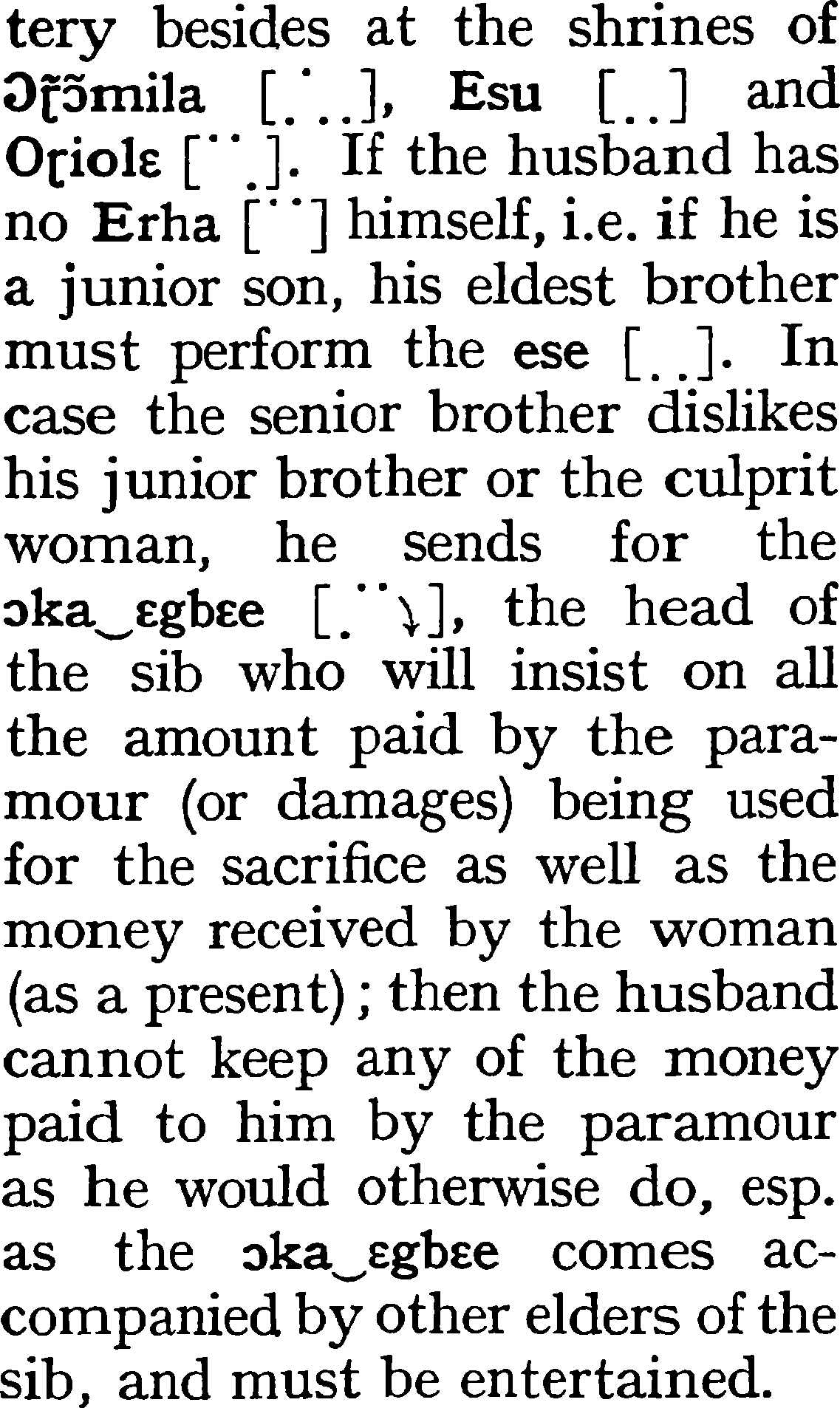Ɔɽ̃ɔ̃mila [ ˩ ˥ ˩ ˩ ], Esu [ ˩ ˩ ] and
Oɽiolɛ [ ˥ ˥ ˩ ]. If the husband has
no Erha [ ˥ ˥ ] himself, i.e. if he is
a junior son, his eldest brother
must perform the ese [ ˩ ˩ ]. In
case the senior brother dislikes
his junior brother or the culprit
woman, he sends for the
ɔka‿ɛgbɛe [ ˩ ˥ ˥ (4-1) ], the head of
the sib who will insist on all
the amount paid by the para-
mour (or damages) being used
for the sacrifice as well as the
money received by the woman
(as a present); then the husband
cannot keep any of the money
paid to him by the paramour
as he would otherwise do, esp.
as the ɔka‿ɛgbɛe comes ac-
companied by other elders of the
sib, and must be entertained.
